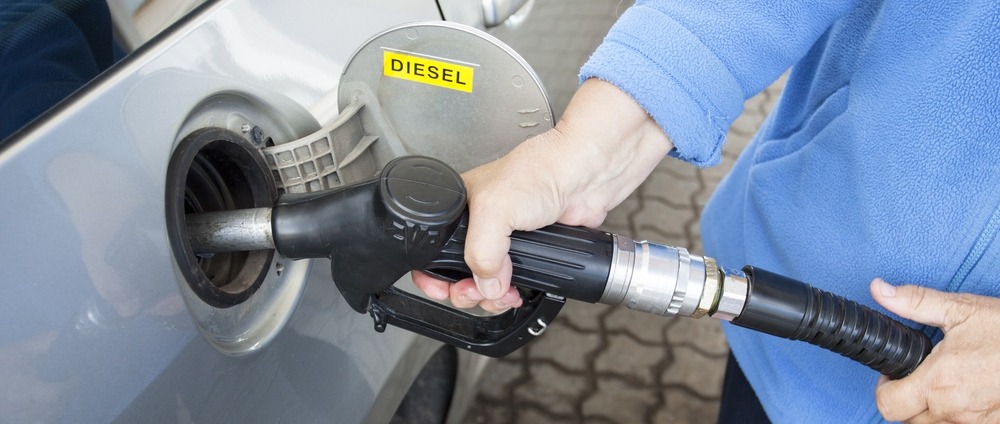- October 30, 2022
- Posted by: Wentworth
- Category: Uncategorized

 Manufactures build diesel engines to last! However, that doesn’t mean they don’t require regular maintenance and the occasional repair. Of course, different makes and models have their own quirks. Below is a compiled list of the most common diesel repairs. Plus, possible reasons for black smoke, an overheating engine, and ways to avoid a dead battery. Finally, a quick mention of common diesel engine defects across multiple manufacturers.
Manufactures build diesel engines to last! However, that doesn’t mean they don’t require regular maintenance and the occasional repair. Of course, different makes and models have their own quirks. Below is a compiled list of the most common diesel repairs. Plus, possible reasons for black smoke, an overheating engine, and ways to avoid a dead battery. Finally, a quick mention of common diesel engine defects across multiple manufacturers.
Common Diesel Repairs
Electrical Issues
Tracking down electrical issues can be time-consuming and frustrating without the proper equipment. As diesel engines evolve, they include more electronic sensors, valves, and computer components that need a full-service auto repair shop to test. However, there are things you can check at home.
Dead Battery
Diesel engines use a lot of power to initially start up. Diesel engines will either have two batteries or one super-large battery to provide adequate power when needed. It is important to protect your battery from the cold in the wintertime. Your best bet is to park in a heated garage. Alternatively, you can install an engine warmer, park near a heated building, and cover your pick-up truck with a thermal car cover. You can always disconnect your battery and bring it inside at night in extremely cold conditions.
Faulty Glow Plugs
As you know, diesel engines use glow plugs instead of spark plugs. Faulty glow plugs can make it difficult to start the engine, especially in cold weather. If the glow plugs don’t heat up enough, combustion becomes impossible. A vehicle that is hard to start may need new glow plugs.
Exhaust Issues
Diesel engines utilize a cooling component that reduces the dangerous emissions in your light truck’s exhaust. The Selective Catalytic Reducer (SCR) injects a fluid into the exhaust to help convert the toxins into less harmful emissions. Other diesel engines may use the Exhaust Gas Recirculation (EGR) valve to reduce the temperature of the exhaust, which lowers NOx emissions. If your diesel is billowing out extra smoke, bring it in for a diagnostic service as soon as possible. If you prefer to wrench on it yourself, the following tips may help.
Black Smoke
Black smoke exiting your exhaust usually means the air-to-fuel ratio is off. Check that the EGR valve is operating correctly. Other possibilities include the following:
- bad injector pump
- faulty injectors
- dirty air filters
- defective turbocharger
Blue Smoke
Blue smoke may be caused by burning oil. Possible causes include:
- worn piston rings
- damaged seals or gaskets
- clogged oil filter
- defective turbocharger
White Smoke
White smoke can indicate improper combustion or excess moisture. Inspect components that regulate combustion, including:
- engine timing
- gaskets
- glow plugs
- injectors
Overheating Engine
Most pick-up trucks with diesel engines can work long and hard when well maintained. However, an overheating engine indicates that your vehicle needs service. Ignoring an overheating engine can cause significant damage to your pick-up truck’s engine and possibly the exhaust systems. Here are a few issues that may cause overheating:
- Verify the air filters are clean and free of debris, ice, or damage
- Check the engine oil
- Inspect the coolant levels
- Look for leaking fluids
- Make sure the injectors are not clogged
- Establish that the cooling fan is operating correctly
- Test the thermostat
Common Diesel Defects
While diesel engines have come a long way since their first prototype over 100 years ago, modern diesel engines occasionally have manufacturer flaws or defects that you may not be aware of. These issues do not affect every diesel pick-up truck. Still, they do happen often enough that a definite pattern has emerged.
Cummins 5.9L 24V
- Lift Pump Failure – 1998-2007 Dodge trucks frequently experience lift pump (transfer pump) failures.
- Cracked Engine Block – 1998-2001 Cummins-powered trucks equipped with engine blocks cast with the number 53 on the side have weak and thin water jacket walls prone to cracking. Once cracked, the engine block must be replaced, costing around $10,000+.
Duramax 3.0L
This diesel engine was a combined effort between GM and Opel. It was offered as an option in the 2019 Chevy Silverado 1500, Tahoe, Suburban, and GMC Sierra 1500 & Yukon. Although this diesel engine was designed with advanced combustion & emissions technologies, it didn’t reduce power or efficiency. Here are a few issues that come up regularly with the Duramax 3.0L:
- Crank Start Problems
- Exhaust Gas Recirculation issues
- Faulty Injectors
- High-Pressure Fuel Pump failure
- Oil Pump Belt needs to be replaced
Duramax 6.6L LB7
The 6.6L Duramax LB7 was released in 2001 in a combined effort between General Motors and Isuzu. The fuel injection system in this diesel engine had issues right from the start. So much so that GM issued a special service campaign that extended the factory warranty on the 6.6L LB7 up to 7 years or 200,000 miles.
Duramax 6.6L LLY
In 2005, General Motors released their second-generation Duramax 6.6L engine, designated the LLY. GM trucks equipped with the LLY also had the EGR cooler installed within the emissions system to comply with the new air-quality standards. Unfortunately, the addition of the EGR and several design flaws within the cooling system may start a domino effect, causing:
- Engine overheating
- Head gasket failure
Power Stroke 6.0L
In 2003, the Power Stroke 6.0L was released in a dual effort between Navistar International and Ford. The 6.0L diesel engine offered a significant performance gain over the previously used 7.3L. However, there were a couple of serious issues with this new design. The 6.0L has insufficient torque-to-yield (TTY) bolts to provide enough force to keep the cylinder heads sealed to the engine block. As a result, the cylinder heads can separate from the engine, causing combustion gases to leak into the cooling system. This can then result in the diesel engine overheating.
In later models (2004-2007), the EGR cooler has a rectangular design that impedes the coolant flow, causing higher engine temperatures.
Even though the Power Stroke 6.0L is a popular engine, here’s a recap of common issues:
- Weak torque to yield (TTY) cylinder head bolts require replacement
- Head gasket failure
- Faulty Exhaust gas recirculation (EGR) valve
- Clogged oil cooler
Power Stroke 6.4L
In 2008, Ford replaced the 6.0L with the Power Stroke 6.4L diesel engine. It was the first time Ford included an emissions control device called a diesel particulate filter (DPF). The DPF was engineered to catch particulates, or soot, moving through the exhaust system. These vehicles undergo a process called regeneration to prevent the DPF filter from getting clogged. That process can allow diesel fuel to adhere to the engine’s cylinder walls. Eventually, that fuel can leak through the piston rings and enter the crankcase, causing oil dilution.
Engine oil that contains fuel residue does not offer adequate lubrication. And we know that diesel engines rely on proper lubrication to run smoothly and safeguard the engine’s components. Frequent oil changes are a must to help offset this design flaw with the Power Stroke 6.4L engine.
Diesel Pick-Up Truck Maintenance
Knowledge is power. And now that you know the things that can go wrong with your diesel pick-up truck, let’s talk about how to mitigate these issues. Always perform routine maintenance. Address leaks or performance issues immediately. Talk with your mechanic if you think your driving style or performance needs require more frequent service appointments.
Common Diesel Repairs and Service In San Diego, CA
Call Wentworth Automotive at (858) 541-1044 or visit us online to make your service reservation with our ASI-Certified Technicians. Your diesel pick-up truck is in good hands at Wentworth Automotive.

